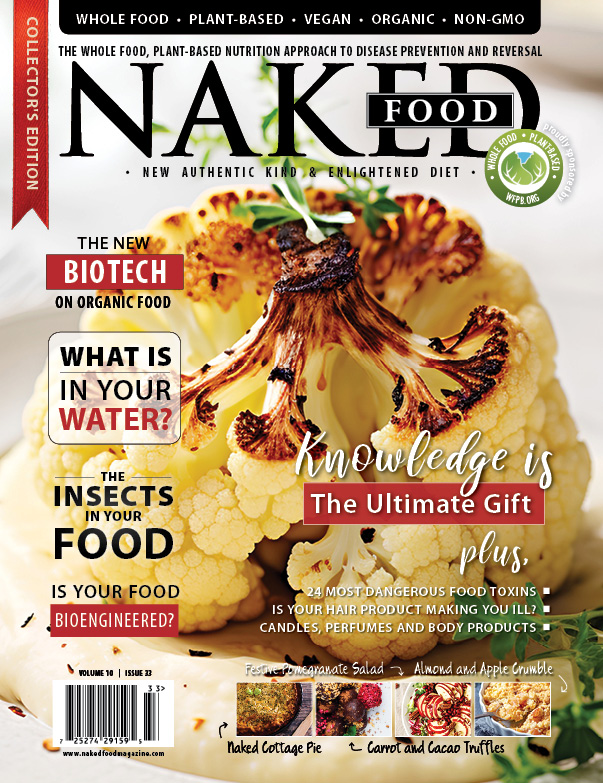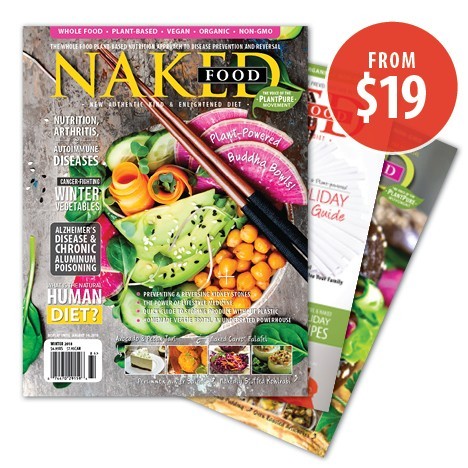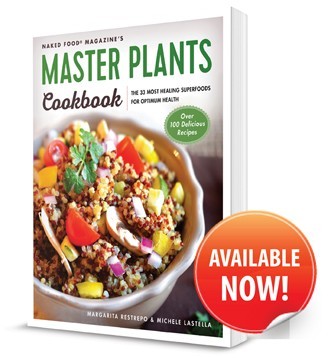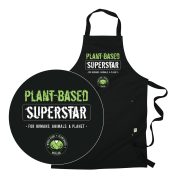 5 years ago
5 years ago
Probiotics 101
Keeping the resident population of bacteria and other microbes in our intestinal tract balanced and beneficial is essential for good health, especially during and after taking a course of antibiotics. …
Read More
 9 years ago
9 years ago
Reversing Colon Cancer With Food
In 1970, British physician Dennis Burkitt observed that a high-fiber diet reduces diseases of the digestive tract. He observed that in countries where diets are high in fiber (that is, …
Read More
 11 years ago
11 years ago
Does GMO equal IBS?
Genetically Engineered Foods could be the root cause of your digestive disorder.
If you are one of the approximately 70 million Americans who suffer from a chronic digestive issue, then …
Read More
 11 years ago
11 years ago
Naked Food Spotlight: Leafy Greens
Dark leafy green vegetables have an extraordinary amount of antioxidants and health promoting nutrients with very few calories. Eating dark green leafy vegetables on a regular basis can provide anti-aging …
Read More
 11 years ago
11 years ago
Blood Detoxifying + Alkalizing + Cancer Preventing Smoothie
The benefits of this smoothie are endless. Here are just some of the reasons why we love it.
Benefits of Kale: High in iron. Per calorie, kale has more …
Read More
 11 years ago
11 years ago
Disease, Nutrition, & Alkalinity
There are many factors that can affect the human body, ranging from simple colds to cancer. There are, however, two main types of diseases: infectious and non-infectious.
Infectious diseases are …
Read More
 11 years ago
11 years ago
Naked Food Spotlight: Turmeric
Let’s start by saying that we shouldn’t consume only superfoods. Although these are nutrient powerhouses packed with large doses of antioxidants, polyphenols, vitamins, and minerals, all plant-foods have a great …
Read More
 11 years ago
11 years ago
Casein and Cancer
Many studies, including a 2009 paper available in the National Institutes of Health library, have concluded that consumption of dairy products may be linked to breast cancer.
1. “Casein, which …
Read More
 11 years ago
11 years ago
Kidney Cleanser Juice
What the kidneys do.
The kidneys process more than 150 quarts of blood each day to separate out the body’s waste. Small units inside the kidneys, called nephrons, host a …
Read More
 11 years ago
11 years ago
Seaweed: Super-wise Your Meals
Forget the super-size and move towards “super-wise” dining. When it comes to sea veggies, size definitely does not matter. If you are looking to add superfoods that pack a real …
Read More
 11 years ago
11 years ago
Smoothies: Sipping your way back to health
When we talk about smoothies, we are referring to the action of blending whole foods such as fruits, vegetables, seeds, herbs, and nuts in a high power blender. Blending is …
Read More
 11 years ago
11 years ago
Eight Must-Knows For Avoiding GMO
1. GMOs Can Enter Your Food Supply in Many Ways Genetically modified organisms (GMO) entered our food supply nearly 20 years ago, coinciding with the beginning of the astounding decline …
Read More
 12 years ago
12 years ago
Seven Wonders of the Beet World
As a vegetarian I’m always keen to find out how I can maximize vitamin/mineral intake within my diet. So after speaking with an acupuncturist about improving my blood circulation and …
Read More
 12 years ago
12 years ago
10 tips to eating less meat and dairy – and sticking with it
Most people are surprised when I tell them that I have never eaten meat in my life. I was raised without it and never had an interest in eating meat …
Read More
 12 years ago
12 years ago
5 Tips For a Non-Toxic Lifestyle
1. BUY ORGANIC! Organic foods have significantly fewer synthetic chemicals plus more nutrients! Healthy plants and animals will help you be healthy too. Avoid refined sugars, processed foods (especially canned …
Read More
 12 years ago
12 years ago
8 Things You Didn’t Know About Starch
1. All large populations of trim, healthy people, throughout verifiable human history, have obtained the bulk of their calories from starch. Examples of once-thriving people include Japanese, Chinese, and other …
Read More
 12 years ago
12 years ago
Labels Matter! We have the right to know
Naked Food Magazine supports the Just Label It Campaign and the right to know what’s in our food.
Studies show that more than 90% of Americans support mandatory labeling …
Read More
 12 years ago
12 years ago
Phytochemicals And Reversing Disease
Phytochemicals are natural compounds found in fruits and vegetables. They are substances that don’t fall within any other categories – they are not vitamins, proteins, carbohydrates, fats or minerals. Their …
Read More
 12 years ago
12 years ago
20 Common Foods with High Antioxidant Levels
So how about those antioxidants? What are they and how do they affect us? Antioxidants are substances that may protect cells from the damage caused by unstable molecules known as …
Read More


